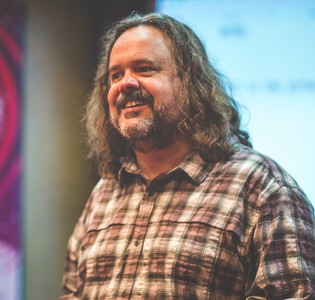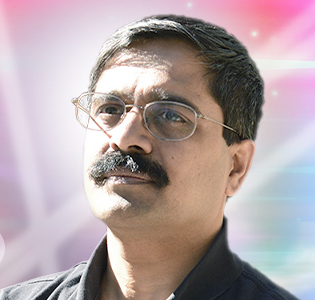From Doom to Boom: Why Indian Coders will Thrive in the Era of AI

In the high-stakes world of technology, audacious predictions are par for the course. The latest comes from Emad Mostaque, CEO of Stability AI, who posits in a call with analysts at the Swiss investment bank UBS last week, that advancements in AI will render the majority of outsourced Indian coders jobless within two years. This provocative assertion, however, demands a more rigorous analysis.
The narrative of AI as a job-killing behemoth is hardly novel. It's a recurring theme that parallels the Industrial Revolution, with each wave of technological progress triggering apprehensions of widespread job losses. Yet, this viewpoint is overly simplistic and fails to account for the intricate interplay between human ingenuity and technology.
Coding extends beyond a mechanical exercise of producing code. It's an inventive pursuit, a problem-solving process that necessitates a profound comprehension of the task and the ability to craft effective solutions. AI, with all its impressive capabilities, has yet to master these human-centric aspects of coding. While AI can automate repetitive tasks, it falls short in understanding the nuances of a problem, thinking laterally, and generating innovative solutions.
Mostaque's forecast seems to undersell the resilience and adaptability of the Indian IT workforce. Indian coders aren't mere keyboard warriors; they are problem solvers, innovators, creators. They have weathered numerous crises, from the Y2K bug to the dot-com crash and the 2008 financial meltdown. Each time, they've rebounded stronger, adapting to emerging technologies and refining their skills.
The Indian Software as a Service (SaaS) domain, a linchpin in the country's IT arsenal, has proven its mettle by displaying an admirable tenacity and adaptability in the theater of economic downturns and turbulent external disruptions. This tenacity is not about simply clinging to existence; it's about blossoming amid the harshest of adversities. Take, for instance, the economic storm unleashed by the COVID-19 pandemic, during which Indian IT organizations exhibited an empathetic and flexible demeanor, re-calibrating contract terms to weather the crisis. These observations, shared in a BusinessToday piece, are echoed by Indian IT's Human Resources leadership, as detailed in a thoughtful essay on peoplematters, which commendably displayed its backbone in the whirlwind of global disruption spurred by the pandemic.
In addition to resilience, the Indian IT juggernaut has an uncanny knack for acclimatizing to emerging technologies and trends. Exhibit A: the lightning-fast pivot towards digital metamorphosis and cloud technologies. Indian IT firms have led this dance, serving as maestros guiding their global clientele in their digital voyage. This ability to shift gears swiftly has been a fundamental driving force in the envisaged steady climb of the Indian SaaS realm, as charted by Chiratae and Zinnov.
Furthermore, Indian IT firms are not merely playing catch up to change; they are trailblazers defining the trajectory of the technological landscape. Tata Consultancy Services (TCS), an Indian IT behemoth, for instance, has pledged to tutor over 25,000 engineers in generative AI technology via Microsoft's Azure Open AI service. This ambitious commitment showcases the proactive strides taken by Indian IT enterprises to remain at the cutting edge.
The interplay between labor laws and regulations in dictating the AI's footprint on jobs is another dimension to the Mostaque's prognosis which merits attention. In a fascinating juxtaposition, he contrasts the prospects of Indian programmers with their Gallic counterparts, implying that more robust labor protection in France plays a decisive role. Yet, the narrative is more labyrinthine. In the United States, the epicenter of the programming populace, labor laws lean more towards flexibility than in France. Nevertheless, the vibrant culture of innovation and adaptability in the American tech industry serves as a safety net against job displacement. In India, while labor laws may strike a balance between the rigidity of France and the flexibility of the US, the Indian IT industry has its unique superpowers. This sector is revered for its chameleon-like adaptability to new technologies and trends, powered by a dynamic and vibrant workforce eager to assimilate knowledge. They are more than just programmers; they are architects of solutions, catalysts of innovation, and creators. Their proficiency extends beyond merely learning new technologies, but also in crafting novel applications.
The adaptability of the Indian IT workhorse is a testament not just to their technical prowess, but also to a culture of ceaseless learning and evolution. In a refrain that resonates in India today, Mahatma Gandhi once said, "Adaptability is not imitation. It means power of resistance and assimilation." This spirit is palpable in the Indian IT industry's approach to AI. Instead of perceiving it as a dark cloud, Indian IT professionals are heralding it as an opportunity to innovate and create value. In this light, the role of platforms like the Great International Developer Summit (GIDS) is priceless. @developersummit offers a fertile ground for over 5,000 peers to congregate, engage, imbibe, and chart a path through change collectively. It inculcates a culture of ceaseless learning and adaptation, which is indispensable in the face of accelerated technological shifts.
In conclusion, the narrative of AI and jobs is not a straightforward tale of technological dominance. It's a complex interplay of technology, regulations, and human adaptability. As we stand at the crossroads of AI and jobs, we must remember that we are not mere spectators but active participants. Let's envision AI not as a job destroyer, but as a tool, a partner that can unleash human creativity and innovation in unprecedented ways.
Have questions or comments about this article? Reach out to us here.
Banner Image Credits: Attendees networking at Great International Developer Summit






